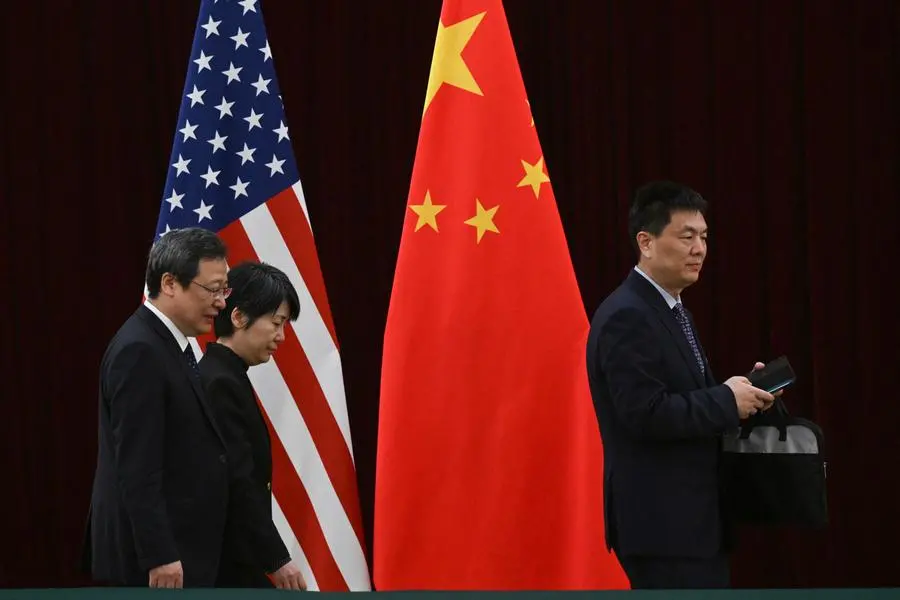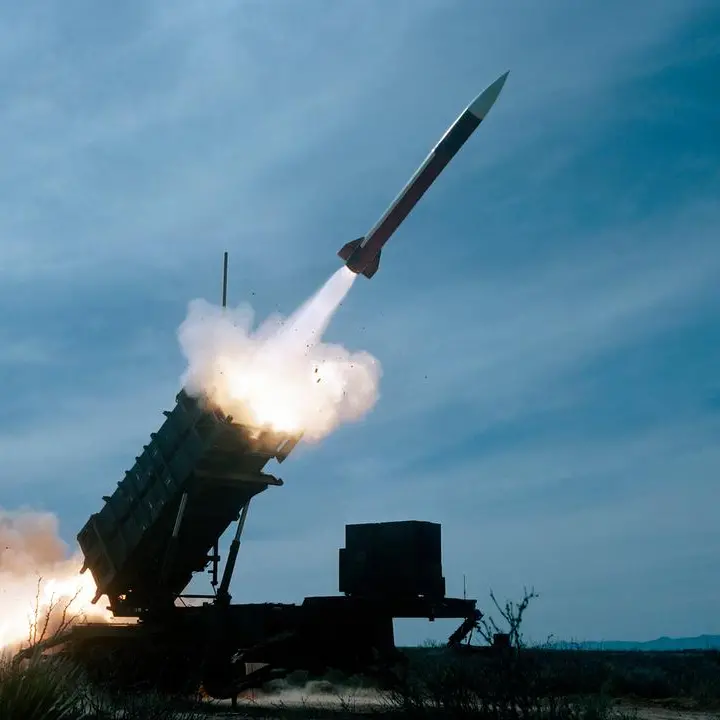PHOTO
Workers file through the glass doors of a quiet office in suburban Beijing, the unassuming targets of new US sanctions aimed at breaking their company's alleged links to North Korea's weapons programme.
China is a key ally and economic backer of diplomatically isolated North Korea, and analysts say Pyongyang relies heavily on Chinese firms and banks to buttress its military and moribund economy.
Washington announced sanctions on Wednesday against six people and five companies in China, accusing them of helping North Korea procure crucial materials "in flagrant violation" of UN Security Council resolutions designed to rein in its nuclear weapons development.
China maintains that it consistently implements UN sanctions and opposes "unilateral" actions by Washington.
One of the companies targeted on Wednesday was Beijing Sanshunda Electronics Science and Technology Co. Ltd., a firm run out of a small 13th-floor office in a sterile business park in the south of the capital.
The US Treasury accuses Shi Qianpei, a Chinese citizen, of serving as a kind of fixer, using the company to procure illicit items for Choe Chol Min, a Beijing-based North Korean operative at a secretive group responsible for developing Pyongyang's advanced weapons systems.
Shi's network of contacts and companies helped Choe obtain "sensitive electronics" and "metal sheets... known to be used in the production of North Korean missiles", the Treasury said.
When AFP visited Beijing Sanshunda this week, two staff members said Shi was not there and were unsure when he would return.
They declined to provide contact details for company executives and denied knowledge of any dealings with North Korea.
Using public business records, AFP was later able to contact Chen Tianxin, the firm's executive director, manager and legal representative.
The US Treasury alleges that Chen is Shi's wife and business partner who also helped to procure items for Choe.
Over the phone, Chen acknowledged her listed roles at the company but denied that she took part in its day-to-day operations.
"I'm just a normal housewife," she told AFP, hanging up without providing a number for Shi.
- Mysterious caller -
AFP left contact details with a Beijing Sanshunda staffer in case other executives wished to comment on the sanctions.
Instead, a call came from a man who identified himself as a North Korean national living in the Chinese capital.
Speaking in broken Chinese and English, the man described himself as a "friend" of Choe and offered to arrange a meeting.
AFP requested an interview, but when contacted again a day later, the man said Choe had declined.
The US Treasury sanctioned Choe last year along with his wife, who allegedly works at Pyongyang's embassy in Beijing.
Under President Xi Jinping, China has become a "safe haven" for North Korean sanctions evasion, said Joshua Stanton, a US-based lawyer who has helped draft laws targeting Pyongyang.
Beijing has "not only protected Pyongyang's money laundering, but also its arms trafficking, cyber crime, use of forced labour and proliferation" of weapons, he said.
From restaurants staffed by North Korean waitresses to grizzled traders in rundown border towns, AFP reporting has shown that Pyongyang has openly conducted trade in China since the two countries relaxed Covid-era border controls last year.
Beijing's foreign ministry said Thursday that China "always conscientiously implements UN Security Council resolutions and fulfils its own international obligations".
"Indiscriminately imposing sanctions cannot resolve (Korean) peninsular issues," spokeswoman Mao Ning added.
- Limited impact -
The sanctions punish people and companies by blocking access to their interests in the US and cutting them out of the global financial system.
But another Chinese national targeted on Wednesday told AFP the moves would have little impact on his business.
Han Dejian is the owner and executive director of Yidatong Tianjin Metal Materials Co., Ltd., a producer of metal sheeting based in northern China.
He told AFP in a phone call that he had "never done" business with North Korea and denied that his products could be used to make missiles.
"I don't know what (the US allegations) are based on," he said. "Our sheets are used by average people to build floors and walls."
The company does not sell goods for export, and therefore has no bank accounts or other interests outside China, Han said.
Stanton, the sanctions expert, likened Washington's policy to a game of "whack-a-mole".
An effective strategy would demand a stronger attack on North Korea's "extensive network of arms trafficking and financial crime", he said.
AFP calls to other sanctioned people and companies went unanswered.
Neither the US embassy nor the North Korean embassy in Beijing immediately responded to a request for comment.





















